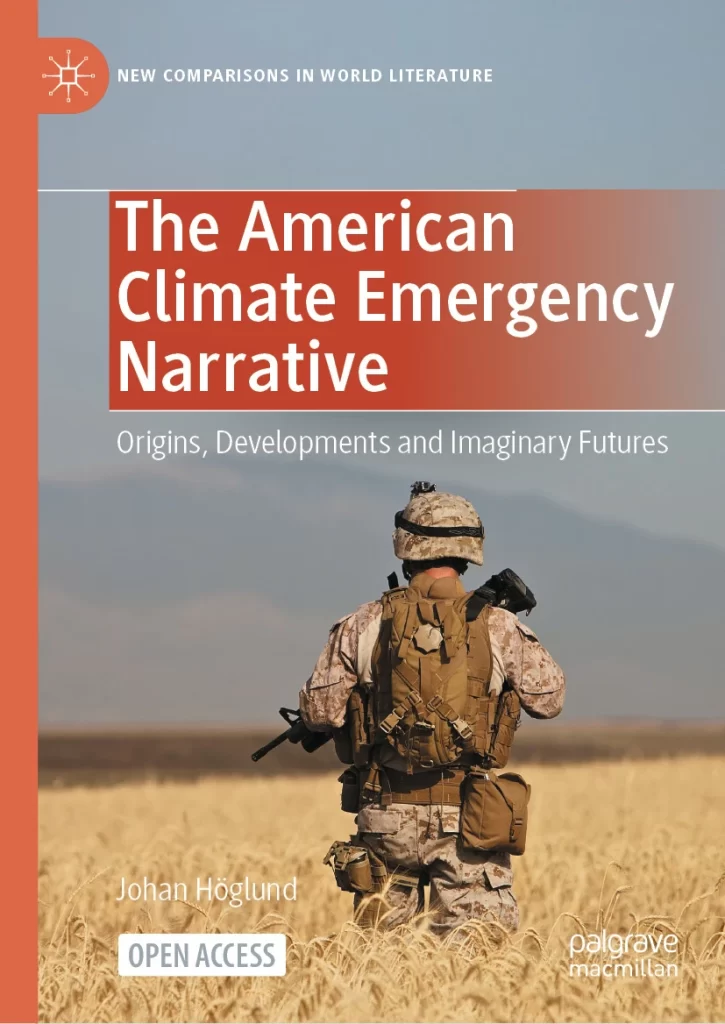In late July this year (2024), my new book The American Climate Emergency Narrative: Origins, Developments and Imaginary Futures was published by Palgrave Macmillan. This book is completely Open Access, and you can download and read the entire text here: The American Climate Emergency Narrative.
This book reports a previous project that was concluded before the Future Food Imaginaries project began, and it does not focus on food specifically. However, this previous project also explored literature and other media that imagine what futures transformed by climate change will look like. The central argument of the book is that much of what has been called “climate fiction” by critics casts ecological breakdown as an emergency for capitalist modernity, and for US hegemony, rather than for the planet. In the opening chapters of the book, I trace the origins of this narrative back to the arrival of settlers in America, when the understanding of the planet and its people as extractable resources was established. In the chapters that follow, I demonstrate how this particular narrative has elided the long, extractive history of the climate crisis while at the same time leveraging the military as a primary bulwark against the crises capitalism has caused, the people it has uprooted, even the ailing planet itself. The final chapter of the book points to stories that break with the dominant emergency narrative to envision futures where the existing, extractivist relationship to land has been abandoned.
The book comes with generous recommendations from some of the most important voices in sociology, environmental history and literature: Jason W. Moore, Pramod K. Nayar, Hannah Holleman and Graeme Macdonald.

